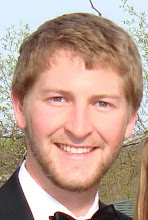John Muiru Kamiri is married, with six children, and he is HIV positive. He has battled through several opportunistic infections, and just last year he fell prey to an infection of the nervous system that rendered his legs entirely useless. Unable to walk, he couldn't farm the small plot of land that provided financial support for his family, and without any money, he couldn't purchase the medication that a doctor prescribed for him. John was a nominal member of a Catholic Church but hadn't been involved in any kind of an active faith for a long time. Despite this, he was told of a ministry in Imani Baptist Church, close to where he lived, that offered help to HIV/AIDS-infected people, and he got in touch with Rosemary and Humphrey, the two workers at the Imani CARE for AIDS center.
Rosemary tells me that when they first met John he couldn't walk, he was very socially withdrawn, and the personal hygeine in his home left much to be desired. She helped John meet with another doctor, and then used the resources of CFA to get him a supply of medication. In just a few weeks, John's legs regained feeling and he was able to walk to the CFA center each week, meeting with Rosemary and Humphrey and working through his situation.
 Now, six months later, John greets me with a smile and an excited handshake. According to Rosemary, he was so happy to regain his ability to walk that he has been one of the most enthusiastic clients at the center, always arriving early for counseling and seminars. Through one of these seminars, he learned better farming techniques that, combined with his newfound gratitude for the ability to work, have allowed him to boost his crops, sell them in the market, and save enough money to first buy a goat, and then to move his family to a better home where they can raise livestock. As the CFA workers have visited his home over the past 6 months, they have noticed a marked improvement in the living conditions and hygeine, as well as a "cheerfullnes" that is clearly evident. Rosemary says that he has come from being "so down, giving up on life," to a place of hope and excitement for the future.
Now, six months later, John greets me with a smile and an excited handshake. According to Rosemary, he was so happy to regain his ability to walk that he has been one of the most enthusiastic clients at the center, always arriving early for counseling and seminars. Through one of these seminars, he learned better farming techniques that, combined with his newfound gratitude for the ability to work, have allowed him to boost his crops, sell them in the market, and save enough money to first buy a goat, and then to move his family to a better home where they can raise livestock. As the CFA workers have visited his home over the past 6 months, they have noticed a marked improvement in the living conditions and hygeine, as well as a "cheerfullnes" that is clearly evident. Rosemary says that he has come from being "so down, giving up on life," to a place of hope and excitement for the future.In talking to Humphrey, the Spiritual Counselor at Imani, I hear even more good news from John's life. Just two weeks ago, John dedicated his life to a personal relationship with Jesus Christ. He is now in the process of finding a church home for himself and his family where they can attend each week and become part of a community.
These are the stories that make me so excited to be here...praise God for John and the life that he can now lead!
Acts 3:6-10 "Then Peter said, 'Silver or gold I do not have, but what I have I give you. In the name of Jesus Christ of Nazareth, walk.' Taking him by the right hand, he helped him up, and instantly the man's feet and ankles became strong. He jumped to his feet and began to walk. Then he went with them into the temple courts, walking and jumping, and praising God. When all the people saw him walking and praising God, they recognized him as the same man who used to sit begging at the temple gate called Beautiful, and they were filled with wonder and amazement at what had happened to him."









